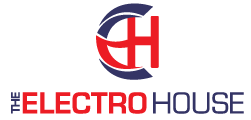The Rise of Student-Driven Encyclopedias: Changing Knowing Landscapes
In the ever-evolving realm of education, where info moves perfectly and accessibility to knowledge is only a click away, student-driven encyclopedias are emerging as a dynamic tool in the discovering procedure.

These systems not just give pupils with a database of information yet additionally encourage them to contribute, modify, and curate content, fostering a joint and interactive knowing atmosphere.
As educational standards change towards more participatory and comprehensive models, the idea of student-driven encyclopedias embodies this transformation. These systems encourage pupils to come to be active individuals in knowledge development, connecting the gap between typical textbook understanding and contemporary electronic resources.
The Concept of Student-Driven Encyclopedias
Student-driven encyclopedias are digital systems where pupils collectively collect, validate, and distribute details on a vast range of subjects. Unlike standard encyclopedias, which are commonly written by specialists, these systems take advantage of the collaborative efforts of trainees to create a thorough body of expertise.

At their core, student-driven encyclopedias are developed to cultivate essential thinking, research skills, and electronic proficiency amongst pupils. By participating in the process of material development, pupils learn to navigate and examine details seriously, abilities that are necessary in today’s information-rich society.
Furthermore, these platforms act as an area for students to discover their passions and share their proficiency. This democratic strategy to expertise production guarantees that a varied range of point of views and voices are stood for, improving the learning experience for all participants.
- Pupils obtain hands-on experience in research study and content production.
- Encourages cooperation and peer interaction.
- Promotes a much deeper understanding of subject.
- Fosters inclusivity and variety in understanding representation.
Fundamentally, student-driven encyclopedias change trainees from easy recipients of information right into energetic contributors, instilling a sense of ownership and obligation in their academic journey.
Benefits of Student-Driven Encyclopedias
One of the principal benefits of student-driven encyclopedias is the growth of necessary 21st-century skills. As students take part in the procedure of material creation, they refine their vital reasoning, digital literacy, and communication skills, all of which are vital in today’s interconnected world.
In addition, these platforms motivate a joint knowing atmosphere, where trainees can work together to validate info, dispute different viewpoints, and co-edit short articles. This peer-to-peer communication not just enhances finding out results yet also cultivates a sense of community and shared respect amongst pupils.
Moreover, student-driven encyclopedias provide a platform for showcasing student job. As trainees contribute to the encyclopedia, they build a profile of their study and writing, which can be important for further scholastic and specialist searches.
Challenges and Limitations

Despite the various benefits, student-driven encyclopedias additionally face certain challenges. Making certain the accuracy and reliability of information is extremely important, as these platforms count on contributions from pupils that might not yet possess expert-level expertise.
- Preserving material high quality and accuracy.
- Supplying adequate supervision and support.
- Guaranteeing equitable gain access to and inclusivity.
To minimize these challenges, several student-driven encyclopedias implement a system of checks and equilibriums, where content is reviewed by instructors or experts before publication. This makes sure that the info offered is both precise and credible, supporting the integrity of the platform.
The Future of Student-Driven Encyclopedias
As modern technology remains to advancement and the landscape of education evolves, the capacity for student-driven encyclopedias is substantial. These systems have the capacity to not only enhance standard academic resources yet likewise redefine the method knowledge is obtained and shared.
In the future, we might see student-driven encyclopedias incorporating advanced modern technologies such as artificial intelligence and artificial intelligence to boost Pls help asap!!!!!!!!!!!!! IF U HAVE READ “THE SECRET GARDEN” PLEASE HELP ME W/ THIS, pls and thx content curation and personalization. Additionally, they may broaden past textual info to consist of multimedia content, using a more immersive knowing experience.
Encouraging the Future Generation
Student-driven encyclopedias hold the assurance of equipping the future generation of students. By placing trainees at the helm of knowledge development, these platforms motivate long-lasting knowing, inquisitiveness, and intellectual independence.
Finally, as educational systems remain to innovate, student-driven encyclopedias stand as a testament to the power of collaboration and the importance of pupil company in the learning procedure. By embracing these platforms, we open the doors to an extra inclusive, engaging, and dynamic academic experience for all.


